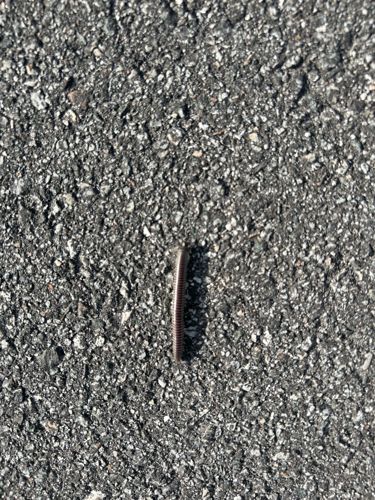Millipede
Scientific Name: Class Diplopoda (various species)
Order & Family: Order: Julida (common type in image), Family: Varies widely
Size: 1 cm to 10 cm, with some tropical species growing much larger (up to 38 cm)

Natural Habitat
Damp, dark places such as under rocks, logs, leaf litter, and in soil; sometimes found in basements or other moist areas in homes, especially after heavy rains.
Diet & Feeding
Detritivores, primarily feeding on decaying plant material (leaves, wood), fungi, and sometimes small amounts of moist animal matter. They play a crucial role in decomposition.
Behavior Patterns
Nocturnal; slow-moving; when disturbed, they often curl into a tight coil to protect their soft undersides. Some species can excrete a foul-smelling or irritating liquid as a defense mechanism.
Risks & Benefits
Benefits: Important decomposers, contributing to soil health and nutrient cycling. Risks: Generally harmless to humans, though some species can release irritating secretions that may cause skin discoloration or mild irritation if handled. They are not known to bite or sting.
Identified on: 10/9/2025